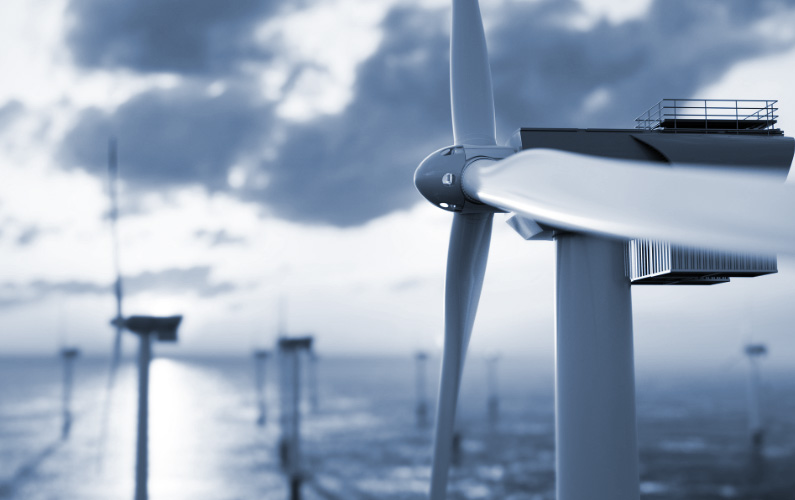- As the media portrays offshore wind as crucial for the energy transition, energy companies like Equinor and Shell have utilised technological innovation narratives to establish their leadership role in renewable energy efforts.
- Our media analysis found that the environmental implications of offshore wind power generated heated discussions, as reports often focused on the risk to marine mammals and fish.
- We also found that misinformation campaigns have sparked pushback from local communities, while indigenous rights emerged as a major issue.
View a one-page infographic summary of the analysis
Offshore wind – a renewable energy source harnessed from the force of winds out on the high seas – is receiving growing media attention as a compelling alternative to fossil fuels, showcasing its potential in driving a sustainable energy transition.
However, the media discourse is complex, illustrating that while promising, the path towards offshore wind adoption is not without its challenges and controversies.
To see how the recent debate has unfolded, we analysed 1,044 English-language articles published in top-tier outlets in the 12 months. Here’s what we found:
Reputation management amid the energy transition
The transition to sustainable, low-carbon energy systems has placed offshore wind in the media’s spotlight. Our analysis shows that energy behemoths like Equinor, Shell, and BP are eagerly making their mark in this emerging sector, actively transforming their reputation from contributors to the climate problem to champions of the solution. They’re achieving this by regularly publicising their clean energy targets, investments in offshore wind projects, and milestones. However, this evolving landscape presents a multitude of potential reputational pitfalls that can significantly impact public sentiment and a company’s bottom line.
The challenge lies in avoiding perceptions of “greenwashing” while contending with legacy perceptions tied to Big Oil’s historical operations. The stakes are high; missteps can lead to scepticism and a loss of stakeholder trust, and successfully navigating this terrain can establish companies as champions of the energy transition.
Notably, Equinor, Shell, BP, Orsted, and Eni have received significant media attention recently by developing offshore power projects in Norway. These projects serve as excellent case studies for other energy companies seeking to gain positive media visibility and effectively manage their reputation amidst the transition to renewable energy. This is where Commetric’s sophisticated analytics can provide strategic insights into how a company’s messages are being perceived, offering a valuable perspective on whether these key narratives are resonating in the intended way. Our experience in the energy sector shows that tracking your company’s visibility, influence, and contextual relevance in the broader energy transition debate can help you not only understand and measure its current reputational impact but also strategically navigate the complex PR landscape of offshore wind energy.
Countering environmental concerns and misinformation
While offshore wind offers an environmentally friendly alternative to fossil fuels, it’s not without its controversies. Media narratives often highlight potential negative impacts on marine life and bird populations and issues related to visual pollution. These concerns are frequently amplified by misinformation campaigns, leading to community pushback against wind projects and creating further reputational risks for involved companies.
Through Commetric’s media analytics, companies can gain a comprehensive understanding of the origin and spread of these narratives. Our recent analysis, for instance, revealed the dominance of erroneous concerns about whales in the Twitter debate around offshore wind, underlining the potential of social media platforms to spread misinformation. With such insights at their disposal, companies can respond swiftly and effectively to misinformation, craft PR strategies to address public sentiment, and manage environmental concerns in a proactive manner.
Ensuring respect for indigenous rights and community engagement
Indigenous rights and community engagement have emerged as pivotal issues in offshore wind projects. Insufficient consultation and disregard for the impact on traditional territories can lead to significant backlash, as observed with Vineyard Wind and Dominion Energy. Companies need to recognise the importance of respectful and transparent consultation to ensure the success of their projects.
We use our influencer mapping methodology to guide corporations in proactive community engagement. By identifying and categorising key influenecers and stakeholders, we help companies develop effective messaging strategies and understand stakeholder perceptions.
Our analysis highlighted the successful community engagement efforts of Orsted and Equinor in the US, illustrating how transparent consultations and community engagement can minimise impacts and uphold the rights of indigenous communities. The Danish energy company Orsted has been diligent in holding consultations with Indigenous groups for its South Fork Wind Farm project, ensuring their concerns about traditional fishing rights and sacred site protections are addressed, whereas Equinor demonstrated a clear commitment to engage with local indigenous communities and minimise the impacts on marine life in its Empire Wind project, which is of critical importance to the livelihoods and culture of many coastal indigenous communities. Without such careful management, the two companies risked facing significant public and media criticism.

